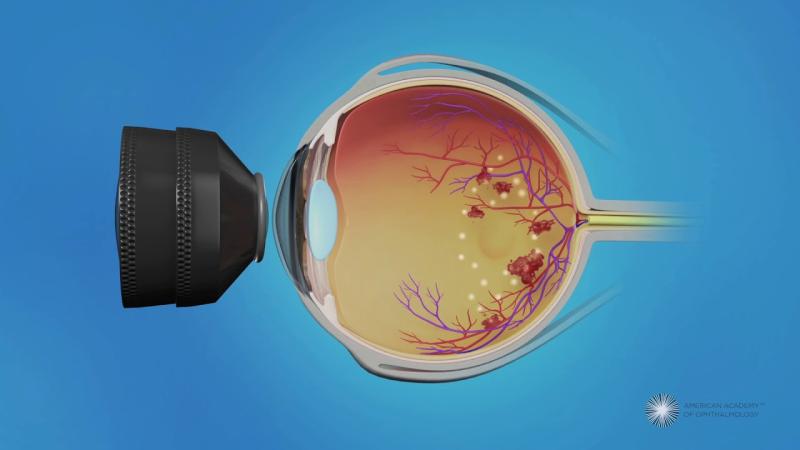Can macular edema be cured?
Macular edema is a condition characterized by the swelling or thickening of the macula, which is the central part of the retina responsible for sharp, central vision. It can occur in various eye diseases, with diabetic retinopathy and age-related macular degeneration being common causes.
While macular edema may not always be completely cured, it can often be effectively managed and treated to reduce symptoms and preserve vision. Treatment options vary depending on the underlying cause of macular edema. Here are some common approaches:
1. Anti-VEGF Injections:
- Anti-VEGF (vascular endothelial growth factor) drugs, such as ranibizumab (Lucentis), bevacizumab (Avastin), and aflibercept (Eylea), are commonly used to treat macular edema associated with conditions like diabetic retinopathy and age-related macular degeneration. These injections help reduce abnormal blood vessel growth and leakage.
2. Corticosteroid Injections:
- Intravitreal corticosteroid injections, such as triamcinolone acetonide or dexamethasone, may be used to reduce inflammation and swelling in the macula. Steroids can help control the immune response that contributes to macular edema.
3. Laser Therapy:
- Laser therapy, including focal laser treatment or grid laser photocoagulation, may be recommended for certain types of macular edema. Laser treatment can seal leaking blood vessels and reduce swelling.
4. Surgery:
- In some cases, vitrectomy surgery may be considered, especially if there is significant traction on the macula or if other treatments have not been effective. During a vitrectomy, the vitreous gel is removed, and the surgeon may address underlying issues contributing to macular edema.
5. Corticosteroid Implants:
- Sustained-release corticosteroid implants, such as dexamethasone implants, may be implanted into the eye to provide a slow and controlled release of steroids over time, reducing the need for frequent injections.
6. Control of Underlying Conditions:
- For macular edema associated with conditions like diabetic retinopathy, managing the underlying disease is crucial. This includes controlling blood sugar levels, blood pressure, and other systemic factors that contribute to retinal changes.
7. Regular Eye Exams:
- Regular eye exams are essential for monitoring the progression of macular edema and adjusting treatment as needed. Early detection and intervention can help prevent further vision loss.
8. Lifestyle and Dietary Changes:
- Adopting a healthy lifestyle, including a balanced diet rich in antioxidants, not smoking, and maintaining a healthy weight, may contribute to overall eye health.
It's important to note that the success of treatment can vary depending on factors such as the severity of the macular edema, the underlying cause, and how well an individual responds to therapy. Additionally, some cases of macular edema may be chronic, requiring ongoing management to control symptoms and preserve vision.
If you or someone you know is experiencing symptoms of macular edema, it's crucial to consult with an eye care professional for a thorough examination and appropriate management plan tailored to the specific condition.
What treatments are available for macular edema?
Several treatment options are available for macular edema, depending on the underlying cause and the severity of the condition. Here are some of the most common treatments:
1. Anti-VEGF injections: These injections block the growth of abnormal blood vessels in the retina, which is a major contributor to macular edema. Anti-VEGF medications like Ranibizumab (Lucentis), Aflibercept (Eylea), and Bevacizumab (Avastin) are injected directly into the eye and can be very effective in stopping the progression of macular edema and improving vision.
2. Steroid injections: Injections of corticosteroids, such as Triamcinolone (Kenalog), can also be used to reduce inflammation and swelling in the retina. However, steroid injections can have side effects, such as increased pressure in the eye (glaucoma) and cataracts, so they are usually used only in specific situations.
3. Laser treatment: Focal laser treatment can be used to seal off leaking blood vessels and reduce fluid buildup in the retina. This treatment is often used in combination with anti-VEGF injections.
4. Eye drops: Several types of eye drops can be used to treat macular edema, including:
- Nonsteroidal anti-inflammatory drugs (NSAIDs): These eye drops, such as Diclofenac (Voltaren) and Ketorolac (Acular), can help to reduce inflammation and swelling.
- Corticosteroid eye drops: These drops can be used in mild cases of macular edema, but they should be used with caution due to potential side effects.
- Antibiotics: If the macular edema is caused by an infection, antibiotic eye drops may be prescribed.
5. Photodynamic therapy: This treatment uses a light-sensitive drug and a specific type of light to destroy abnormal blood vessels. This is a less commonly used treatment option for macular edema.
6. Surgery: In rare cases, surgery may be necessary to treat severe macular edema. This may involve removing a part of the vitreous gel ( vitrectomy ) or removing the entire macula and replacing it with a healthy macula from a donor (macular translocation).
The best treatment for macular edema will vary depending on the individual case. It's important to consult with an ophthalmologist to discuss the best treatment options for you.
Here are some additional things to keep in mind:
- Treatment for macular edema is often ongoing. You may need to receive regular injections, eye drops, or other treatments to control the condition.
- Early diagnosis and treatment are important for preventing vision loss from macular edema.
- There are new treatments for macular edema being developed all the time. Talk to your doctor about the latest research and treatment options.
Here are some resources where you can find more information about macular edema:
- National Eye Institute: https://www.nei.nih.gov/node/38
- American Academy of Ophthalmology: https://eyewiki.aao.org/Diabetic_Macular_Edema
- Macular Degeneration Association: https://www.macular.org/












